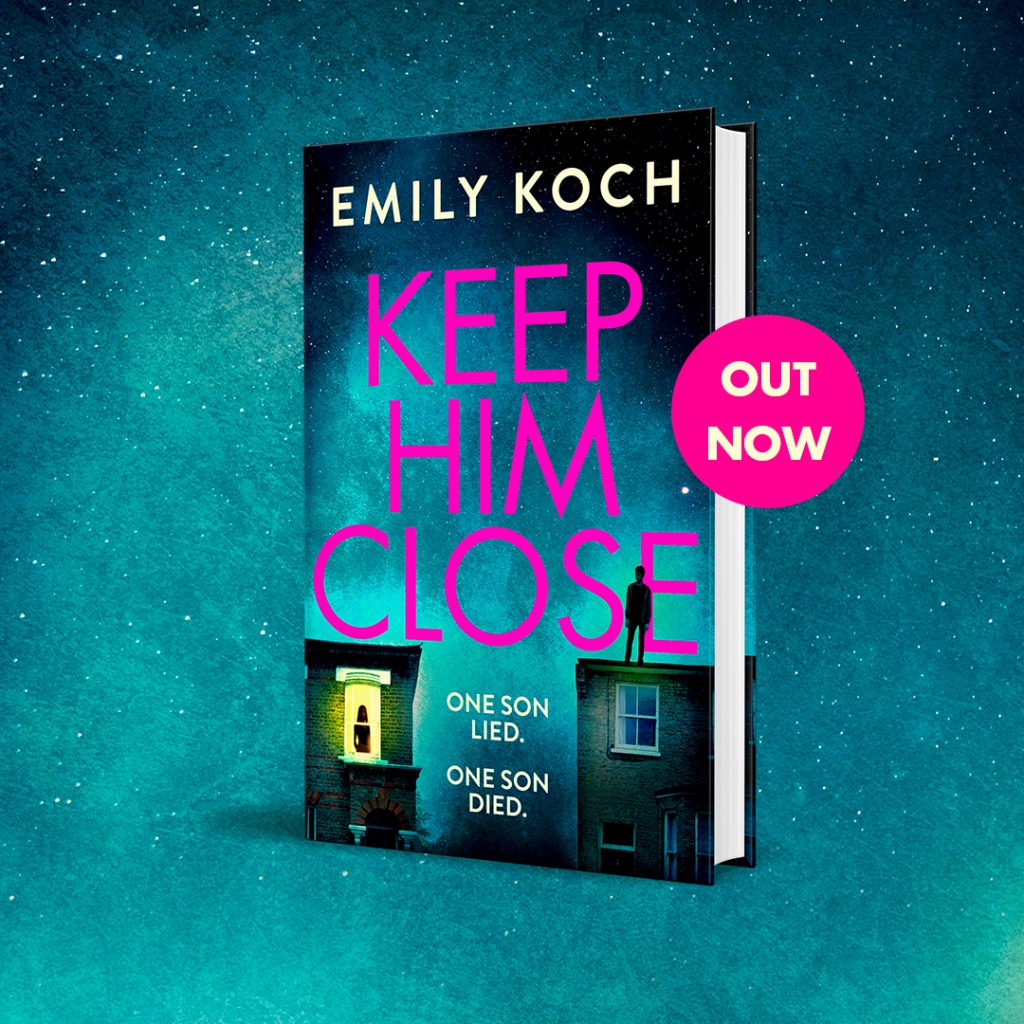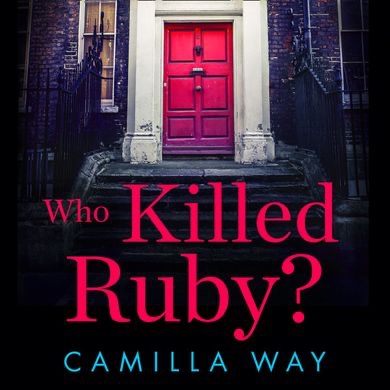
Today it’s my turn on the blog tour for ‘What Was Lost‘ by Jean Levy.
Sarah has no memories. She just knows she was found, near death, on a beach miles from her London home. Now she is part of a medical experiment to see whether her past can be retrieved.
But bad things seemed to have happened before she disappeared. The police are interested in her hidden memories too. A nice man she meets in the supermarket appears to have her best interests at heart. He seems to understand her – almost as if he knows her…
As she fights to regain her memories and her sense of self, it becomes clear that people are hiding things from her. Who are they protecting? Does Sarah really want the truth?
We’re lucky to have an extract from this excellent psychological thriller today. Once you’ve read it, I’m sure you’ll be as enthralled as I was. Read on after the extract for my review of this novel.
Vic x

Episode Two
As far as I can remember, the day began with waiting. Of course, I had by now come to realise that cats care very little about the passage of time. Only people care about that. So I stood patiently and watched the black and white cat sniff the newspaper around the outside of the plate, lick some invisible scrap of tuna from the newsprint, re-sniff the plate and then, without casting even a glance in my direction to offer some gesture of humble gratitude, pad purposefully towards the cat flap and nose its way through. I had no idea who that cat belonged to. If it had a name I was not aware of it. In fact, my association with this animal depended entirely upon the fact that the door that opened from my dank backyard into my kitchen included this special, cat-sized flap. I had considered resealing it. Parcel tape would probably have been enough to stop the ungrateful animal nudging its way through. But there was always the worry that the parcel tape might turn up at its edges and look a mess and then I’d regret my decision. There was also the possibility that I might miss the cat. Sometimes it purred. I might have missed the purring.
I watched the flap for a few moments then hurried over to the window to catch a last flash of black tail as it disappeared over into the yard next door. The cat was gone. So I turned my attention to the list on the work surface, took a pencil and added the word TUNA, folded the slip of paper into my jean’s pocket, replaced the pencil and walked over to the back door to confirm that the two bolts were secure. I checked that my wallet, driving licence, notebook with attached pencil, mobile phone and car keys were in my bag, touched the kettle and washing machine plugs three times each, rechecked the back door then hurried out of the kitchen before any doubts might set in. I knew it would be all right once I was in the car. I was always all right in the car.
*
The supermarket was anywhere between ten and twenty minutes away depending on traffic, and all the way there I played over the morning so far, from the point when I’d been ready to leave and that black and white cat had popped in through the flap and purred. So now it was after nine and the car park was busy. Too busy. But I knew that driving straight back home would not have been the right thing to do.
*
Inside, the aisles were still sparsely populated. So it would probably be OK. I grabbed a trolley and navigated it straight through the opposing rows of crisps and biscuits towards the central walkway. A sharp left took me into the tea and coffee aisle, which stretched deep into the rear of the supermarket. Then, avoiding the stack of Easter eggs abutting the central aisle, I pushed on to cereals, halted my trolley and observed the choices before me. So many choices. So many rectangular boxes, diminishing off into the distance. An intimidating range of nuts, dried fruits, seeds, wheat / no wheat, oats to absorb cholesterol, low salt, low fat, high fibre, additives / no additives stretched out before me. I threw myself into reading labels, studying carbohydrate contents, pushing my trolley further in past illustrations of happy, healthy other thirty-five year olds, whose lives were perfect because they consumed the correct breakfast cereal. The happy images began to coagulate into one multi-coloured muddle of good advice, manufacturers’ commitments, occasional warnings. I could feel myself diffusing into the options that surrounded me. The familiar stirrings of panic were rising up from just below my diaphragm. I controlled my breathing, observing the oat-coloured floor tiles, the matt surface of a shoe. Its partner shoe hovering slightly off the ground. My eyes traced up the many-deniered tights to a woolly hemline, thick, wintry cloth, grey hair, an outstretched arm, an aged hand reaching hopelessly for a small packet of cornflakes on the top shelf. My own crisis was suddenly dwarfed by the plight of this diminutive shopper. I watched her sag in frustration and help herself to a family-sized box from the shelf below. I had no choice but to intervene.
‘Shall I try and reach?’ I whispered.
The woman glanced round. ‘Oh, would you, dear?’ She replaced her family-sized box and turned to me, wobbling her head slightly as she watched me ease one of the smaller boxes from the top shelf. I handed it over. She thanked me. I smiled graciously and watched her round the end of the aisle before stretching up, taking an identical box and placing it into my own trolley. I stood for a moment staring back along the aisle of wasted opportunity then, clenching the handle of my trolley so hard that it must have looked as if my knucklebones might burst through my skin, I hurried away from the cereal. Justifying my decision. Cornflakes are good for you.
There was a feeling of openness about the fruit and vegetable terrain. Here the produce was arranged on long, sloping stalls. It was like a huge, sterile homage to those fairy-tale markets, where ragamuffins stole peaches and a boy might trade his cow for a handful of magic beans. I brushed past a tall stands of fresh herbs and the air filled with the lush, calming fragrance of basil. A startling yellow and black promotion demanded: BUY ONE GET ONE FREE. I ignored it, hurried on past strawberries and grapes, grabbed a bunch of green bananas, then wheeled my trolley back and helped myself to a pot of basil, re-read the promotion, selected a second pot, put both pots in my trolley, picked one of the pots up and put it back on the stand. Why would anyone want two pots of basil? One’s enough. Why on earth was I getting myself wound up about a pot of basil?
But it wasn’t really about the basil. Or the cornflakes. I knew that It was about deciding. Not just deciding what to choose. It was all those other decisions about what not to choose. Because every choice involves not merely the possibility of choosing the wrong thing but an endless number of possibilities of not choosing the right thing. Too many decisions about not choosing. Dr Gray always insisted: ‘If there are two many decisions, just take a deep breath and walk away.’ So I had walked away. I’d walked so far away that there were now six mountainous banks of food between me and those unchosen boxes of cereal. I took a deep breath, fumbled in my pocket and pulled out my list:
BANANAS
CEREAL
CAT BISCUITS
TUNA
I read it several times to make sure. Then, just as I was folding it back into my pocket, I glanced up and noticed a perfect read and green apple rolling towards me. Arcing towards my foot. Impact was inevitable. Inevitable. And that’s when it all began. Well, just some of it began. Although, in truth, it really did all begin with an apple.
****

I whipped through ‘What Was Lost‘, a thrilling story of Sarah and the amnesia she endures. I was hooked from the opening ‘episode’.
I found it easy to empathise with Sarah and the predicament she found herself in. The sense of frustration at her loss of control pervaded every page as did an uneasy sense of something being held back. In an age of the unreliable narrator, I was unsure who could be trusted in this novel, giving this story more depth.
The foreboding felt by Sarah was almost palpable at times and, as the story developed, I enjoyed getting to know certain characters at the same time as Sarah made their acquaintance. Conversely, some of the unlikeable characters proved completely realistic and accurately portrayed.
Levy’s background in psychology shines through in her knowledge of psychological conditions and the impact of trauma on patients.
Jean Levy wilfully misdirects the reader on a number of occasions and, despite some fantastical elements, I found ‘What Was Lost‘ utterly compelling.
Vic x


















